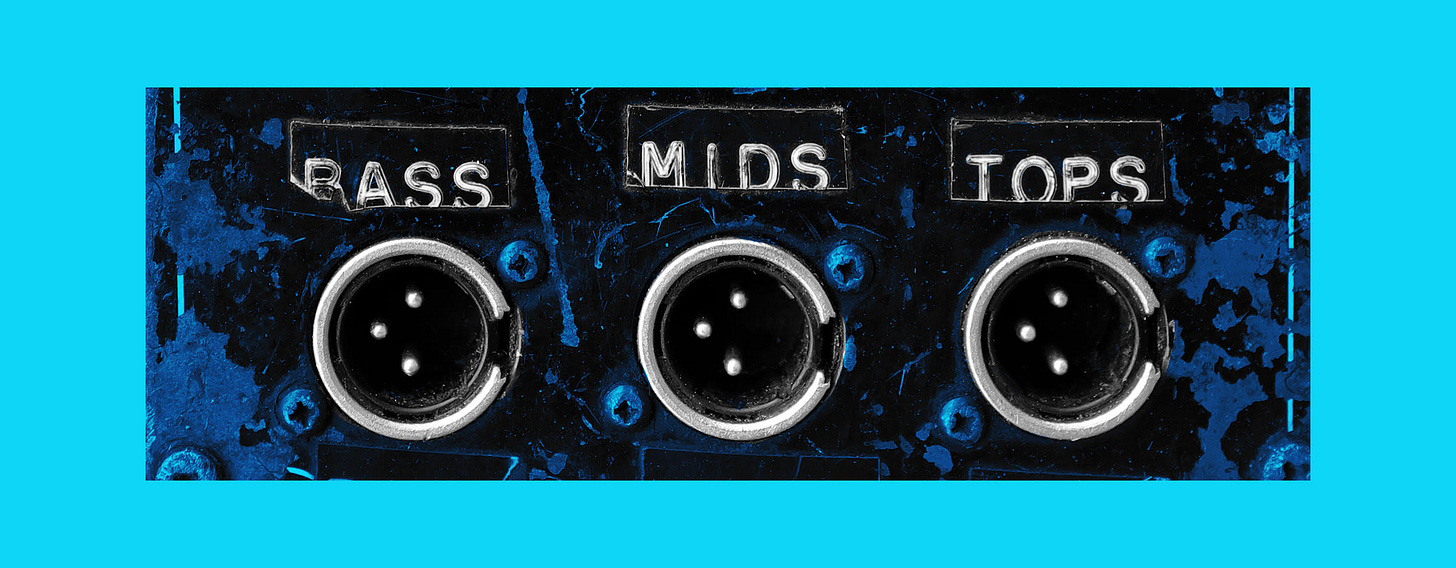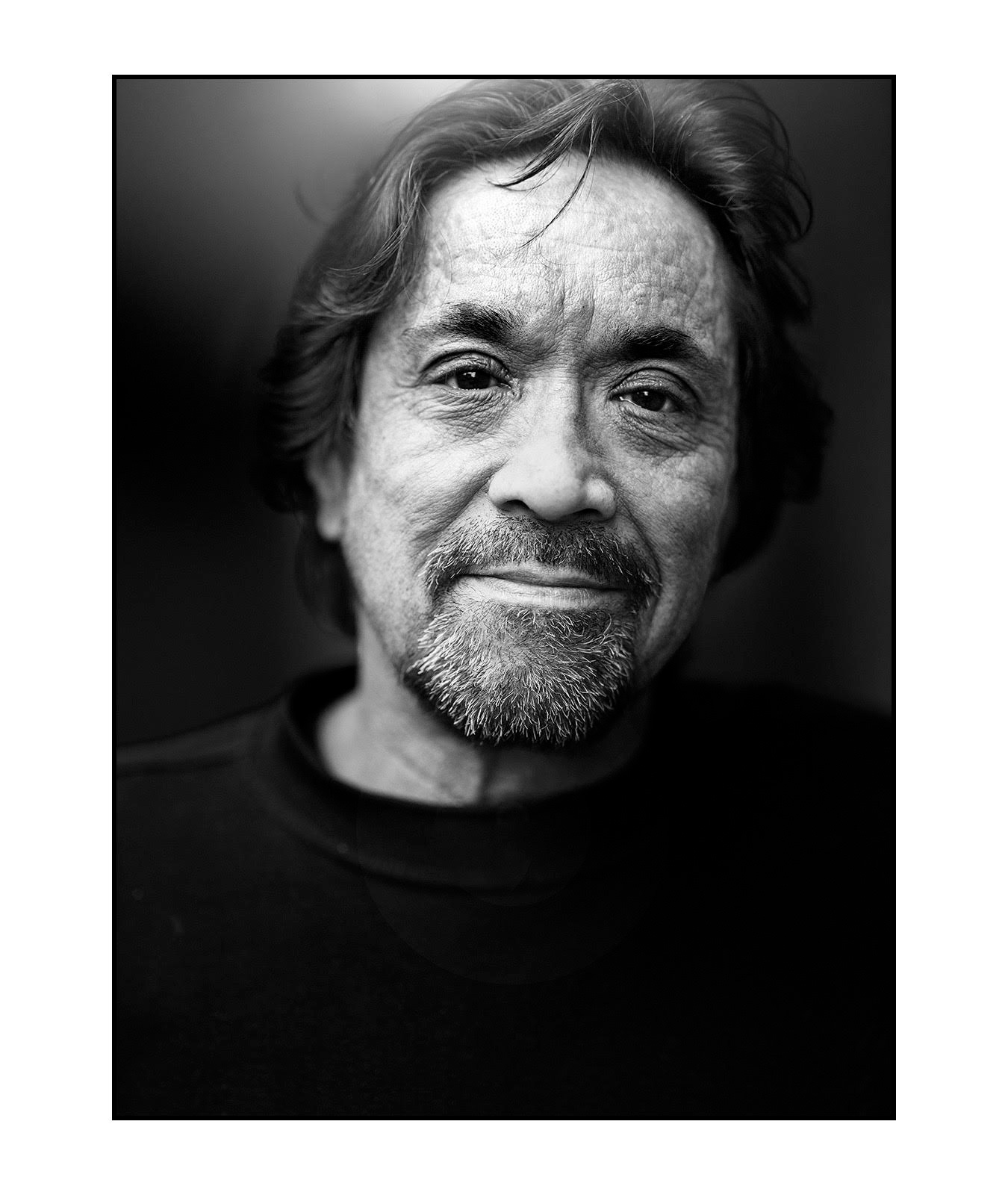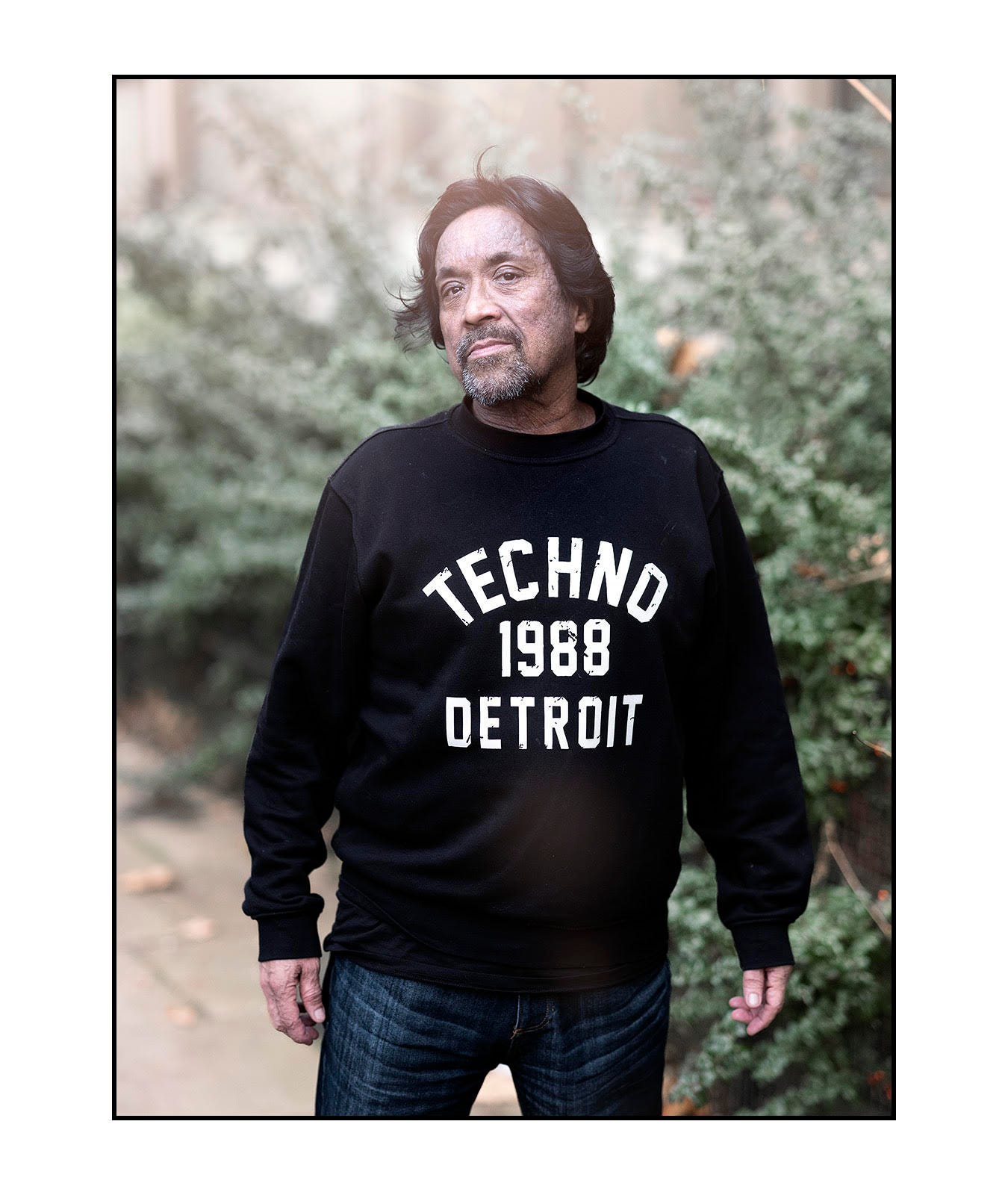OK everyone, new year, brave new world [shudder], let’s get into it.
Thanks as ever for bearing with us, we’ve got lots for you coming up – going to drop part two (but not the last part!) of the epic story of David Harrow in short order to make up for lost time, but first another low-key legend. That last word isn’t used lightly, either: Trevor Fung really is part of cultural mythology. In the summer 1987, he invited four friends – Paul Oakenfold, Nicky Holloway, Johnny Walker, and Danny Rampling – to Ibiza. Those four were overwhelmed by discovering ecstasy and dancing to DJ Alfredo (who sadly passed away aged 71 over Christmas) playing Nina Simone, Mr Fingers and U2 at Amnesia, returned to London and all founded club nights that changed the world.
As with all subcultural mythology, there’s a little bit more to it than that of course – I wrote about the complexities of the Ibizan interactions with wider club culture here. But it certainly is true that Fung made that invite 1987, it very certainly was extremely influential, and Fung also compiled the pivotal Balearic Beats (The Album Vol 1), which cemented both the word “Balearic” and a particular set of genre parameters in the international musical world. He also went on to play at just about every major event on the UK acid house / rave scene, including mega raves up and down the country, and was one of the first to take the UK way of doing things international.
But the interesting thing about Fung is that while this was all very exciting, it was in another sense just a blip in his ongoing career. He’d been a DJ for a long time before that and he’s been a DJ ever since, and the whole cultural upheaval of Balearic, acid house, rave wasn’t really an upheaval for him. He’d been DJing most nights since his teens in the mid 70s, had been playing in Ibiza since 1982, was already on top of developments – he and his friend Colin Hudd were the first to play house music at the Caister Soul Weekender in the mid 80s – and just seemed to take each development as a natural progression rather than getting caught up in the idea of grand revolutions.
I got to know Trevor not long ago, via the Balearic Burger community on Facebook, founded by one John Bawcombe. Bawcombe is a well-connected scenester who’s also been around since day dot, but started a playlist project in lockdown which mushroomed to say the very least, and has just recently has been turbo-charging the idea that small, genre-agnostic parties really matter. Over the past couple of years he’s been organising a never-ending tour of England, as well as stop-offs in Ibiza, which Fung has been a big part of: I played alongside him at their Bristol date last year, which was a highlight of the year (me and Charlie Stoic’s set is here, hem hem - and here’s Trevor playing on the BB radio show). And through this, I’ve discovered that Fung remains absolutely committed to this situation, choosing these friendly, community-oriented – often charity fundraising – gigs over the bright lights of big clubs and arenas whenever he can.
As you’ll see from our chat, he’s always been that way, and the fact he’s not followed his contemporaries Carl Cox and Paul Oakenfold into those bright lights is no accident. In person, he’d much rather talk about tunes, or about his fundraising enterprises - he’s been a supporter of Last Night A DJ Saved My Life since it started in 2010 and at the time of writing is out in Tanzania doing workshops at a centre for street youth - than about any trends or industry developments. So as to better illustrate the long sweep of his story and his love for the grass roots away from hype, we glossed over the events of 1987 and 1988 which have been covered at great length elsewhere, and got into the nuts and bolts of a life very well lived which has left him quite spectacularly un-jaded and loving what he does. He started by apologising for having had to postpone our Zoom conversation because he’d just had a flood of discogs orders – he is still an avid collector of new and old music, so has a side hustle selling off his prunings and doubles...
So you're dealing in records and you're a DJ, basically. That's you full time, is it?
Yeah, normally yeah, it's DJing and obviously making tunes and that – I've just started to get back into that a lot more now. So I'm going to be releasing a few things next year with other companies. Spencer Broughton1, you know, you know Spencer, for his distribution company, Prime. And that so I've got quite a few things. I've got some stuff on with Leo. Leo Elstob2 and stuff. So yeah, I've got some little projects like that. But I don't want to go too mad on those. But I've got about five or six things coming out that I thought I've just sort of been hanging on to. I just thought they should be released really. So DJing, I've got 52,000 records that have been collected... since 1975, really. From when I started buying 7” singles as a little kid at school, playing penny-up-the-wall with my dinner money to go back to the record shop and buy singles.
And that was in... West London?
Well, South London. I was born in West London right and I moved about when I was about eight over to South London, Streatham, Mitcham, around that area and then that was me at school playing penny-up-the-wall and buying my singles – I just love sevens because they were only about 25p then. Not like now, they're like 15 quid, aren't they?
Do you remember what the first one you bought was?
Do you know, it was probably some glam rock thing like Sweet or something like that. I don't know what it was the first ever single I bought, actually. I know the first ever album I bought was That's the Way of the World, Earth Wind & Fire, because I used to be a massive Earth, Wind & Fire fan. You know, their really early stuff. I mean there’s earlier stuff, you know, but that album was the one that dragged me in.
Okayyyy that's a pretty heavyweight start if you’re getting into dance music…
Yeah I was into the music scene, and plus I inherited a big collection from my dad: it was mainly all Motown, really old reggae – you know, the good old reggae and only on seven inches... and quite a bit of jazz. My dad was he's from South America. Guyana. And I found out when he died that he DJed as well. In fact he DJed at my mum's engagement party [agog] – I said “Well what the hell happened there?” because she was supposed to marry someone else, never quite got to the bottom of that – but yeah my dad married my mum and then they moved to England in 1959, and then they had me two years later 1961 and then, well I used to go through all my dad's music and my uncles and aunts and that used to come around with loads of music so it was it was all like lovers rock, reggae, dub, Motown, old soul, jazz you know that's what I was listening to when I was a young kid.
So he was collecting into the 60s a bit then?
Well, he sort of stopped, he just had his collection and then he stopped, he had a really nice sound system and that's what you love as a kid, didn't you? Big speakers, nice sound. You're just like, oh yeah, this is great. And then I started buying, you know, it was all the glam rock period, wasn't it? And then I was buying singles, I was buying all sorts of things, you know, with it and stuff like that. You do that, you're a kid, don't you? And like I said, I've got a lot – about 4,000 7”s now. And then I went out and started getting 12s, LPs and the Earth Wind & Fire album was the first one. And that really, really pulled me in a lot more into other people's, you know, realms and that. But yeah, it's a great journey.
And were you aware of where your family culture fitted into South London in the 60s, 70s? Being Caribbean but not Black, South American but not Latin...
I did think about it in a sense, but when I grew up, a lot of my friends, even though they were born over here... I’d say most of my friends were born over here but their parents were from another country, so they came over there in the 50s, 60s. So I grew up with all those sort of kids with parents from different places, but they were just into the same music I was. You know, at the time, the general public wasn't into that sort of music, you know, they were still waiting for “our” stuff to be number one, which I suppose was eventually Donna Summer, wasn't it? “I Feel Love”, yeah, that was like… well, I remember I was going out to a club and I was really into the dance music and that, and hearing that became number one, and it was like, yes, yes, “We've got a record in the charts, you know.” I used to go to this place on a Monday night, it was the Soullight on Monday night, there was DJ's down there playing all old disco stuff, good disco stuff, all the new disco stuff too, but then they'd have another DJ that would come in and play all this rock stuff, you know, like, weird, it was like really weird, it was like all the disco stuff going in, and then you'll have another DJ come in and play this rock stuff, then they come off, go back to the disco stuff, and it was just a bit bizarre, and everybody had to wear a shirt and tie, wear a shirt and put trousers, it was bizarre, it was really bizarre.
Were you a dancer dancer?
Yes, I used to dance a lot. And then we used to go to all the clubs all over London, you know, we used to be, we used to be at Crackers. We used to go lunchtime on a Friday, bunk off School, go down there. We used to go 100 Club, Saturday morning, Saturday lunchtimes, you know, and all the all the rest of the other clubs that are Crackers, Cheeky Pete's, we're at all the clubs all over London that was playing soul music and that – I just used to be really into the soul and funk. So that's how I got into joining the... you’ve heard of the Soul Mafia3? Yeah. So we have Chris Hill, Robbie Vincent and them. And so I got into them when I was really, really young. And they added me to the team and I was doing all the gigs and that with them, you know, the things like Bognor.
You were DJing with them?
Yeah, yeah, yeah, I was playing on their lineups. I was the youngest on the lineup with Chris Hill, Robbie Vincent, Jeff Young, Pete Tong. It was myself, Chris Brown, Sean French, you know, you know, all the guys. So yeah, that was my love really: jazz, soul and funk.
What did DJing consist of then? Was there much craft to mixing, or was it fade-out-fade-in at that point?
Yeah quick fade, drop the next one in them sort of early days. I started mixing in the early 80s, that's when I first got my first two decks. I got two Technic decks, paid £110 each for them. I've still got them here. Still work! And they still look alright, too, I just had them serviced. I paid £110 each. God do you imagine? I mean, they've got about £800 each now, second hand. And that's when I started getting into mixing. But before that, it was all cuts and cues and all that sort of style of mixing. Because you didn't really have the technology then.
I remember how I got into the game. I was doing little parties and that. And then I said to my best friend at the time, Rafe, I said, “Do you fancy buying a sound system?” It was a Citronic sound system. You know, it was about a thousand pounds – that’d be like 10 grand now. Do you know what I mean? And we bought this system. Well, I bought it, got it all on finance and stuff, I got it through my dad’s work. Then my friend said to me, “I don't really want to do it now.” I was like [grits teeth, shakes fist]… But really, I didn't care, so I carried on.
And I was doing all local discos and things like that with, funny enough, with Carl Cox. Right? Yeah! He was a friend of mine, lived in the next big town and we played with another guy called Ray Locke. So we were doing like little parties together, all these little club halls, scout halls, all that sort of stuff. And then I got a tipoff, and I saw this bar opening in Covent Garden called Rumours. And went in there. I asked them to DJ. They said, you're 18? I said, yeah, of course I am. I wasn't. I said, yeah, yeah, I'm 18! Got in there. And that was my first big residency. I worked there for about five years and they opened the club downstairs. I got Carl Cox involved. I got Paul Oakenfold involved. So I've got quite a few people involved. I couldn't do all the nights, but I used to do that Thursday, Friday, and Saturday nights, and then share the other nights out with the other guys. So it was real good fun.
Keep reading with a 7-day free trial
Subscribe to Bass, Mids, Tops and the Rest to keep reading this post and get 7 days of free access to the full post archives.






